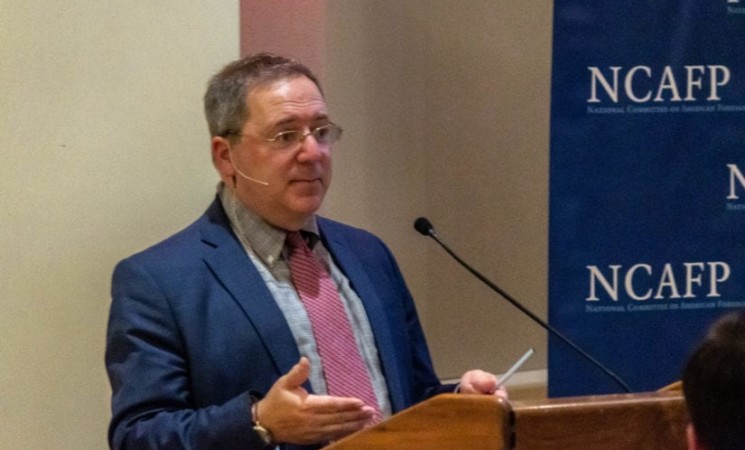On October 31, the NCAFP hosted David E. Sanger, National Security Correspondent at the New York Times, for a discussion on cybersecurity ahead of the 2018 Midterm Elections. Sanger titled his talk “Democracy, Security, and the Cyber Battlefield” and examined far more than merely issues surrounding elections. He provided context for the current overall state of cybersecurity in the United States – including analogies reaching as far back as 1909.
In short, Sanger surmised that the cyber domain has become the primary area in which states undercut one another without rising to war. Cyber tools are cheap, difficult to attribute and easily scalable for any level of operation. Though cyber is often discussed with relation to nuclear strategic theory, Sanger offered that it is perhaps more accurate to compare cyber tools to air power. In the world of cyber, we are yet to see exactly what states and other actors are capable of when they are at their most creative.
Sanger highlighted a number of known state-sponsored cyber attacks, ranging from Stuxnet to the Sony hack of 2014 and the OPM data breach in 2015. All of these breaches and attacks demonstrate the scope of the national security issues presented by cyber tools and the challenges faced by the United States in generating norms and rules that might hamper its own intelligence and military efforts.
The current state of the internet of things presents its own challenges in limiting cyber incursions. Sanger pointed out that the lack of industry standards regarding devices and the aging government approach to countering or deterring cyber meddling will only yield more problems in the future.
In closing, Sanger offered a possible solution: lift the veil of secrecy surrounding government cyber efforts. Though, clearly, not all forms of security of subterfuge can be revealed for security reasons, the establishment of transparency can limit public debate and give potential foes less to fear in their own strategic planning when they consider American cyber programs. Until the U.S. or other actors achieve some measure of transparency, it will be hard to establish the political limits of cyber ‘warfare.’
The audience stepped in with a number of incisive and relevant questions regarding international bodies, the challenges of attribution, and the role of the private sector in the cyber arena. Following the talk, Sanger was kind enough to sign copies of his new book The Perfect Weapon: War, Sabotage, and Fear in the Cyber Age and engage with the audience at a lively reception.
Sanger's book can be purchased here.



